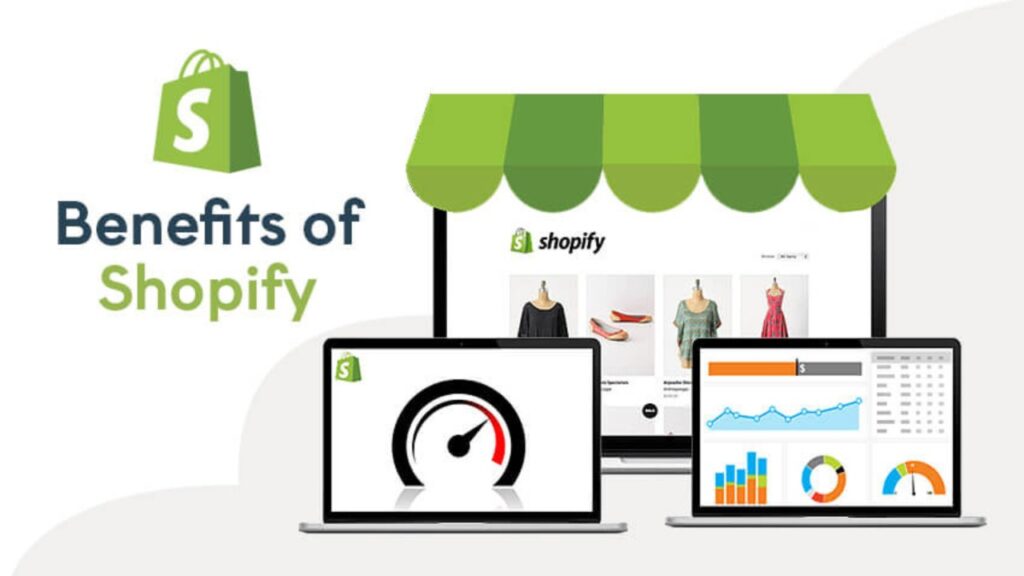Understanding the Role of a Marketplace Facilitator
Shopify is a platform that connects people interested in buying things from those that sell them, i.e., third–party sellers with marketplaces on it can sell their products directly to customers without involving other intermediaries such as wholesalers or supermarkets, among others. Such functions usually include handling payments for sold items, helping with client communication activities, gathering money payable for tax purposes, and so forth. The facilitator is meant to see that a transaction is very smooth so that sellers can expand market reach without necessarily handling everything involved in running an online store independently.
Table of Contents
Is Shopify a Marketplace Facilitator?
When searching for ways of doing business online, most companies ask if Shopify is a break-even facilitating market. In contrast to Amazon or eBay, which are typical examples of marketplaces, Shopify is different from one as it only offers software packages used by its users who want individual web stores under their labels. On Shopify, each store is separate and run on its own. This means that instead of helping with transactions directly, Shopify mainly provides e-commerce solutions.
The Legal Implications of Being a Marketplace Facilitator
You have numerous legal obligations to fulfil when you are called a marketplace development facilitator. However, the main one is supposed to collect. Would this be for resellers or consumers of the products? Simply put, you’re supposed to charge the necessary fees. It gets even more complicated when different states or countries have different tax laws. The only way compliance can be achieved is through regular updates by marketplace facilitators about such laws. If they don’t, legal action may be taken against them, or their platform reputation may be ruined. Do they want that to happen?
Benefits of Using Shopify as a Marketplace Facilitator

Notwithstanding its many advantages, Shopify also has its downsides. One of the significant issues is cost. This is because the company charges subscription and transaction fees that accumulate relatively high, especially for businesses owned by individuals with limited income. Additionally, dealing with intricate tax rules, especially when selling in various parts of any given country, poses a challenge on its own behalf, which needs attention from Shopify itself rather than leaving it up to individual shareholders, even though they provide some tools for this purpose.
Additionally, many features on Shopify require third-party apps, which can increase costs and add complexity to store management.
Challenges of Using Shopify as a Marketplace Facilitator
Though there are many advantages of using Shopify, it also has its own set of problems. One of the main ones is the cost factor; Shopify will charge you for subscriptions and transactions, and this can be pretty expensive for small businesses operating on a tight budget. Another issue is dealing with complex taxation rules, especially for companies that trade in various regions worldwide. Shopify offers some resources for calculating taxes, but the merchant is responsible for it. Additionally, many features on Shopify require third-party apps, which can increase costs and add complexity to store management.
Alternatives to Shopify as a Marketplace Facilitator
Shopify has competitors that offer robust electronic business solutions to its users. WooCommerce, among others, is highly preferred, mainly because it works closely with the WordPress content management system. This provides many more customization possibilities, but it requires more knowledge of coding and administration duties. In addition, BigCommerce has similar properties to Shopify but has integrated mechanisms that do away with the need for external applications. Magento, an open-source platform, provides unparalleled customization and scalability, making it ideal for larger enterprises with dedicated development teams.
Tips for Successful Selling on Shopify
To make it big on Shopify, the proper optimization of your store for better performance and user experience must be noticed. It’s essential that your shop also opens fast, is optimized for mobile platforms, and offers an easy navigation system. Using search engine optimization (SEO) techniques will boost the recognition of your shop; hence, more potential clients will see it bringing more internet sales. Furthermore, it will improve its rankings on organic search results pages, leading to more purchases from site visitors who originate from Google or Bing searches. Moreover, the reach and engagement activities can be enhanced through the employment of such tools as email campaigns or social media integration.
Case Studies of Successful Businesses Using Shopify as a Marketplace Facilitator
Using Shopify’s robust e-commerce tools, similar to Gymshark, the fitness apparel brand scaled globally, thus managing international sales seamlessly. It is on record that several businesses have been successful through the platform. In fact, Allbirds, which is famous for its sustainable footwear,, has benefited from Shopify as it easily handles its direct-to-consumer sales because its interface and backend are user friendly. Also, consider Kylie Cosmetics as an example.
Conclusion: Is Shopify the Right Choice for Your Business as a Marketplace Facilitator?
In conclusion, while Shopify is not a marketplace facilitator in the traditional sense, it provides the essential tools and infrastructure for businesses to operate their own online stores effectively. The decision to use Shopify depends on your specific business needs, including customization requirements, ease of use, and scalability. While Shopify offers numerous benefits, it’s essential to weigh these against the potential challenges and costs. Exploring alternatives and considering your long-term goals will help ensure you choose the best platform for your e-commerce success.
